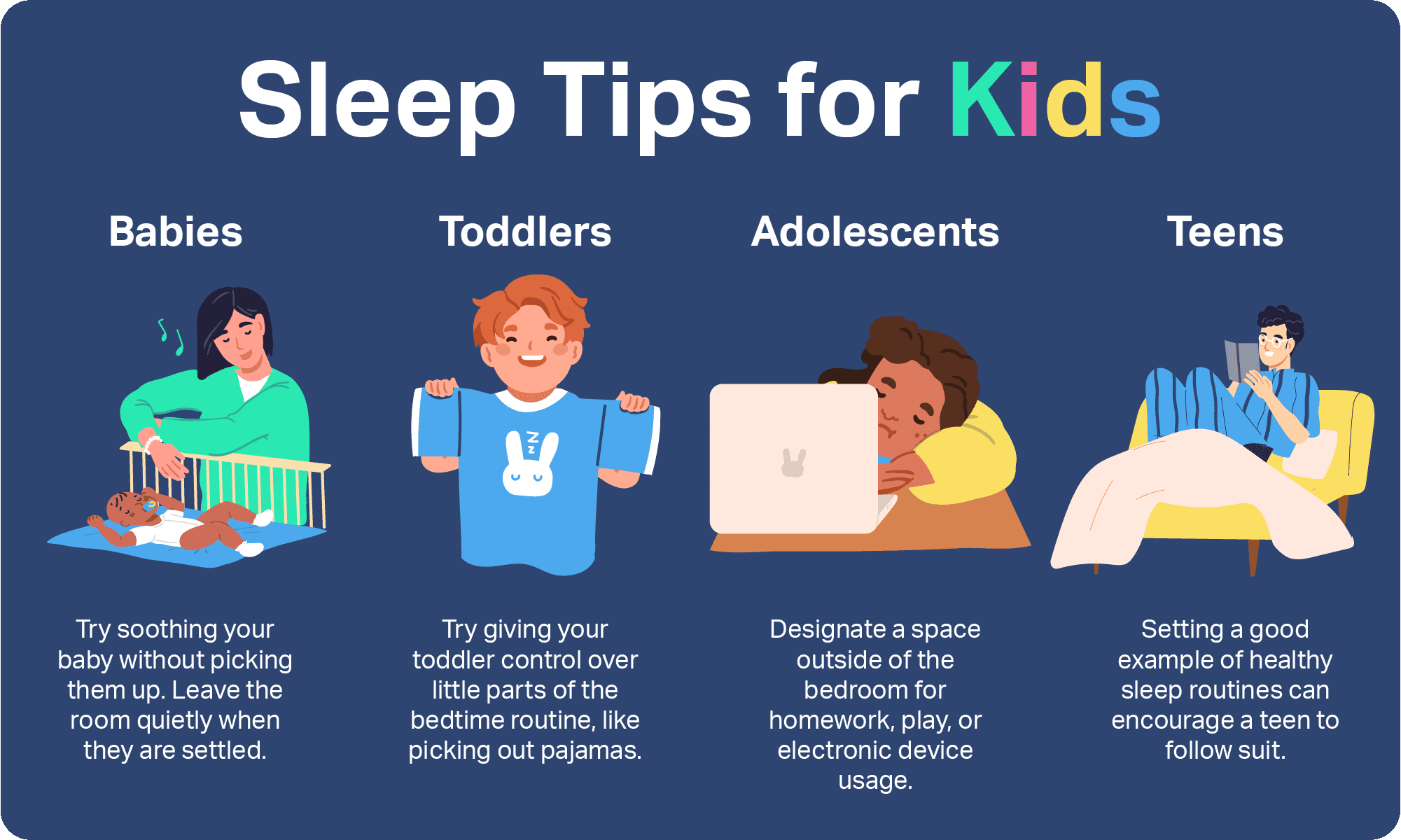
Sleep is fundamental to a child’s overall health and well-being. Establishing healthy sleep habits from an early age not only improves their physical and cognitive development but also ensures they are well-rested, allowing them to excel in their daily activities. In this article, we will dive into the importance of healthy sleep habits for children of different age groups, offering practical tips and strategies to help parents foster a good night’s sleep for their little ones.
The Importance of Sleep for Children
Sleep plays a crucial role in a child’s growth, development, and learning capabilities. It directly impacts their physical growth, cognitive function, emotional well-being, and overall behavior. Research shows that children who consistently get enough sleep experience improved attention span, memory consolidation, and problem-solving skills.
1. Toddlers (1 to 3 years old)
During the toddler years, establishing a consistent sleep routine greatly contributes to their well-being. Toddlers require 11-14 hours of sleep per day, including daytime naps. To promote healthy sleep habits:
Set a regular bedtime and wake-up time to create a sense of routine.
Create a calm and soothing bedtime routine, such as reading a book or taking a warm bath.
Ensure their sleep environment is quiet, comfortable, and dimly lit.
Avoid giving them sugary or caffeinated foods or beverages close to bedtime.
2. Preschoolers (3 to 5 years old)
Preschoolers need 10-13 hours of sleep per day, including a longer sleep schedule at night and a shorter nap during the day. To establish healthy sleep habits:
Maintain a consistent sleep schedule, allowing for sufficient nighttime sleep and an appropriate nap duration.
Engage them in calming activities before bed, like reading or listening to soft music.
Ensure their sleep environment is conducive to relaxation by minimizing noise and distractions.
Limit screen time before bedtime, as the blue light emitted by screens can disrupt their sleep patterns.
3. School-Aged Children (6 to 12 years old)
Proper sleep is critical for school-aged children as it affects their academic performance, mood, and overall health. They require 9-12 hours of sleep per night. To help them develop healthy sleep habits:
Establish consistent sleep and wake-up times, even on weekends.
Encourage regular exercise, but avoid vigorous physical activity close to bedtime.
Create a quiet, comfortable, and screen-free sleep environment.
Encourage winding down activities, such as reading or practicing relaxation techniques, before bed.
4. Teenagers (13 to 18 years old)
Teenagers also require adequate sleep to support their physical growth, mental health, and academic performance. They need 8-10 hours of sleep per night. To promote healthy sleep habits in teens:
Encourage a consistent sleep schedule, prioritizing an appropriate bedtime.
Discourage late-night electronics usage, as they can interfere with sleep quality.
Help them understand the importance of sleep and the benefits it brings to their overall well-being.
Support the creation of a sleep-friendly bedroom environment, including a comfortable mattress and suitable room temperature.
Conclusion
Building healthy sleep habits in children is of utmost importance across all age groups. By providing them with consistent sleep schedules, creating a calm sleep environment, and limiting distractions, parents can greatly contribute to their child’s physical, cognitive, and emotional development. Encouraging good sleep habits from an early age will not only benefit children in their younger years but also lay the foundation for a healthier future where sleep remains a priority in their lives.

